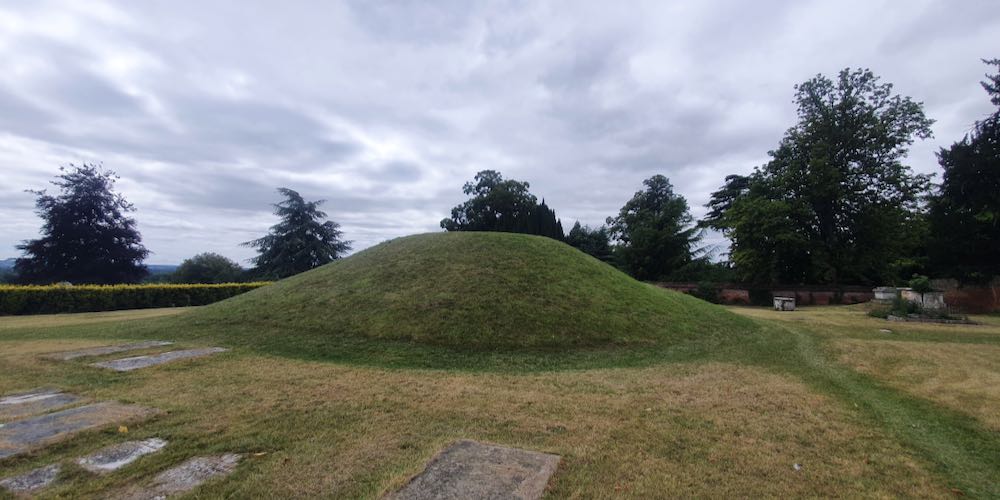The politically correct today will be intolerable tomorrow—at its core, progress demands it.
The Burden of Memory
In Nobel Prize winner Kazuo Ishiguro’s seventh novel, there’s a giant in the land. Set in post-Arthurian England, The Buried Giant opens with elderly Britonian couple Axl and Beatrice on the cusp of a fantastical quest. Having awakened to the fact that neither of them can remember further back than a few weeks, or even days, they resolve to discover the cause of their forgetfulness.
Beatrice is particularly insistent on this, concerned that absent any recollection of a shared life, their love won’t last: “I’m wondering if without our memories, there’s nothing for it but for our love to fade and die.” Axl, at least initially, is not afraid of that. He’s not going to let his princess slip. He’ll bundle her up and bind her to his back before he lets forgetfulness win.
But Axl and Beatrice aren’t the only ones who’ve been so afflicted. As they quest, it becomes apparent that the whole region is shrouded in a memory-leeching mist, and the Saxons and fellow Britons they encounter have all fallen prey to it.
Given the breadth and depth of memories drained, Beatrice first fingers God as the one to blame. After all, who else would have the means and motive to take all those memories away? “Perhaps God’s so deeply ashamed of us, of something we did, that he’s wishing himself to forget… and when God won’t remember, it’s no wonder we’re unable to do so.” However, as the tale unfolds, the culprit is revealed to be much closer to home. Indeed, it is a person Axl himself knew long, long ago.
Here, a word about the prose. Throughout the novel, Ishiguro’s writing is restrained. The narrative voice isn’t dazzling—it’s actually pretty prosaic. However, in this tale, tepidity is a strength, conveying that in this post-Arthurian land of muddlement and amnesia, not only memory but language itself has faded to grey. While it may not be scintillating or seismic, it is eminently safe.
Coincidentally, the choice Ishiguro made to employ a more denuded prose points to the decision his characters must face: now knowing that their memories have been taken away, do they recover the panoply—good, bad, and ugly—or let them fade?
The Buried Giant is not a prescriptive text. It is a survey and exploration of how human beings relate to the past.
The former may seem the obvious choice, but if The Buried Giant makes one thing clear, it’s that memories, like language, can cut two ways. As one of the characters presciently states, “The mist covers all memories, the bad as well as the good,” and if one’s recollections are particularly cruel or grave, wouldn’t it be better that the whole lot be fogged over and swept away? Some lustre may be lost but peace will be maintained. Better bland, even blank, than fractious or pained.
As it turns out, that is precisely the choice that was made. A portion of Beatrice’s initial contention was correct: something shameful did happen involving Britons and Saxons. It was a blight on the land. An indelible stain. One that would have led to only greater wrath, vengeance, and heartache. It could not be dealt with, only erased. And if all other memories had to go, it was a price the empowered parties were willing to pay.
It might have been simplest if Ishiguro had had his protagonists rage against the injustice of having their memories wiped away, but by The Buried Giant’s summit, both Axl and Beatrice are facing memory recollection with more than a little trepidation. Indeed, it’s suggested more than once that they are no longer keen on their memories’ carte blanche restoration.
Beatrice outright says, “There’s a part of me fears the mist’s fading. Can it be so with you, Axl?” And while he initially assuages her fears, Axl later admits, “You and I longed for [the mist’s] end, thinking only of our own dear memories. Yet who knows what old hatred will loosen across the land now?… Who knows what will come when quick-tongued men make ancient grievances rhyme with fresh desire for land and conquest?”
Ishiguro doesn’t skip their accruing reticence. He gives a respectable amount of page time to different figures who suggest that some things are “better to forget” or else “not worth remembering” without authorial rancor or censoriousness. While not an endorsement of their stance, the time spent is an olive branch to those who would implore their fellow denizens, “Leave it. Let it rest. Don’t unearth the giant. Not ever. Or, at least, not now. Not yet.”
It’s worth noting that this is not an uncommon stance. Whether in Ishiuguro’s world or the one we inhabit, determined forgetfulness suffers no lack of apologists eager to contend that forgetfulness can be helpful, even requisite for good relationships. Within The Buried Giant, Axl himself asks Beatrice towards the end, “I was wondering, princess. Could it be our love would never have grown so strong down the years had the mist not robbed us the way it did? Perhaps it allowed old wounds to heal.” For Axl, their memories’ theft provided them an opportunity to begin again–to start afresh–but while the sentiment is perspicuous, determined forgetfulness is also all too often indicative of moral indigence. As another character asks, “Is it shame makes their memories so weak or simply fear?” It is not at all clear that love is always, or even most frequently, the reason for wanting the past erased.
In this, as well as in many other respects, The Buried Giant is complex—turning memory over and over again like a Rubik’s cube that defies completion and forces the reader to puzzle through discomforting questions about what we dearly wish to remember and what and why we choose to forget.
In the end, Ishiguro offers no explicit answers as to how sour or shameful memories ought to be dealt with. The Buried Giant is not a prescriptive text. It is a survey and exploration of how human beings relate to the past. However, while there is no dictate on how to reckon with it, a cautionary portrait is painted in re-plastering over old unpleasantness, because as one of Axl and Beatrice’s questing companions remarks towards the novel’s close, it is foolish to assume the plaster will hold: “Foolishness, sir. How can old wounds heal while maggots linger so richly? Or a peace hold for ever built on slaughter and a magician’s trickery? I see how devoutly you wish it, for your old horrors to crumble to dust. Yet they await in the soil as white bones for men to uncover.”
If Edmond Dantes exhorted “time and silence” as remedies for all ills, given and received, Ishiguro ripostes that burying giants buys you only the most uneasy and ephemeral peace.



